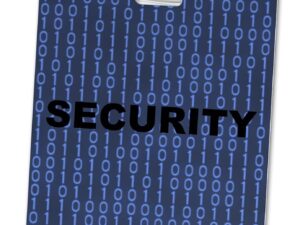
It has been said that “thieves will steal anything.” After three decades in law enforcement I have to agree. If something has real or perceived value, someone will eventually try to steal it. Do thieves really steal eyeglasses? YES, they do!
A quick google search will open your eyes and reveal the magnitude of this thievery. News stories like these are common:
“Surveillance video captures suspects stealing designer eyeglasses”
“Woman wanted in theft of more than $3K worth of eyeglasses”
“GLASSES THEFT: Police Looking for Suspects in Eyeglasses Thefts”
Across the United States eyeglass theft often goes undetected and underreported but it is booming “underground” criminal enterprise. With designer frames selling for hundreds of dollars and most optical shops being naive or simply unaware of “shrinkage,” optical goods have long been a favorite of organized retail crime rings. Eyeglass frames are expensive, easy to conceal, and easy to sell and in recent years, more and more common “tweakers” and assorted opportunistic crooks have discovered just how lucrative and low risk stealing eyeglasses can be. This news story shows surveillance video of a typical eyeglass theft in progress https://www.youtube.com/watch?v=tf5mwAjPDFQ
After I retired from law enforcement I became a Private Investigator and physical security consultant in Portland, Oregon. I investigate all kind of cases for businesses, attorneys, and private individuals and offer security advice and training to businesses, and occasionally private individuals. One of the services I specialize in is conducting comprehensive background checks for clients all over the United States and sometimes even in foreign countries. These are not the “instant “online background checks that can be found online. Those are almost always worthless and a waste of money. I conduct real background checks using proprietary subscription data bases that are not available to the general public.
One of the advantages of having a private investigator who specializes in background checks “check-out’ someone, is that a skilled investigator can recognize “anomalies” or “things” that just don’t look right. The investigator can then dig deeper to find out what is really going on and provide the client with a more thorough picture of the subject.
Background Check uncovers eyeglass theft ring
I was recently hired by a Homeowners Association (HOA) to find out everything I could about one resident. The HOA had a number of issues with this resident and suspected the resident was running some type of business out of their home which was a violation of HOA rules. They were hoping I could come up with some evidence that would give them cause to take action against this resident.
Surveillance is always an investigative option but it is time consuming and thus costly. For Background Checks, it is usually not practicable unless there is some specific “intelligence” information. Just watching a location for hours and hours hoping to see something that might be useful is a waste of client funds and, in my view, unethical conduct as it does nothing except enhance the investigator’s pocketbook.
Each comprehensive background check I conduct involves searching over 5,000 separate data bases and comparing and analyzing hundreds or thousands of “data points.” One of the investigative resources I often use during background checks is a software program that allows me to conduct an automated search of multiple online market place sites like Craigslist, eBay, Etsy, Shopify, Bonanza, and a surfeit of others. It still takes trained human eyes to analyze the information but it would be a monotonous and time-consuming task without an automated way to search multiple sites all at once.
Sometimes I have a specific reason for searching these sites and other times I am just “fishing” for anything that catches my eye. An experienced investigator will “know it when they see it.”
Email address cracks the case . . .
In this case, one of the “things” I noticed from my marketplace search was that a seller on one of these sites was using an email address that I was able to link to my subject. This seller was selling eyeglass frames. OK . . . nothing illegal about someone selling a few used eyeglass frames. But, when I searched this seller’s history I noticed that this seller had been selling eyeglass frames month after month on several sites. My inquiring mind started asking: “Where is this person getting so many eyeglass frames to sell?” Is selling eyeglass frames online the business that the person was running out of their home?
This background check lead to a full-fledged investigation involving some controlled purchases from the seller, some pretext phone calls and door knocks, some surveillance, and a couple late night “trash audits.” Ultimately, I was able to establish that this seller’s “associate” was shoplifting eyeglass frames from optician shops and optometrist offices and selling them to my subject. My subject would then re-sell them online all across the country. While this was not a big-time organized theft ring, I estimate that this criminal enterprise was bringing in about $20,000 a month in elicit funds. Not bad profit for a small home-based online business!
all across the country. While this was not a big-time organized theft ring, I estimate that this criminal enterprise was bringing in about $20,000 a month in elicit funds. Not bad profit for a small home-based online business!
Security measures can prevent eyeglass theft.
Lackadaisical inventory control, a lack of security awareness, and a mind-set that it can’t happen here, make optical shops and optometrist’s office displays ripe for the picking. In an upcoming article, I will cover some practical steps optical retailers can take to prevent theft. Until then, keep a close eye on your eyeglasses – they are valuable targets for thieves!




